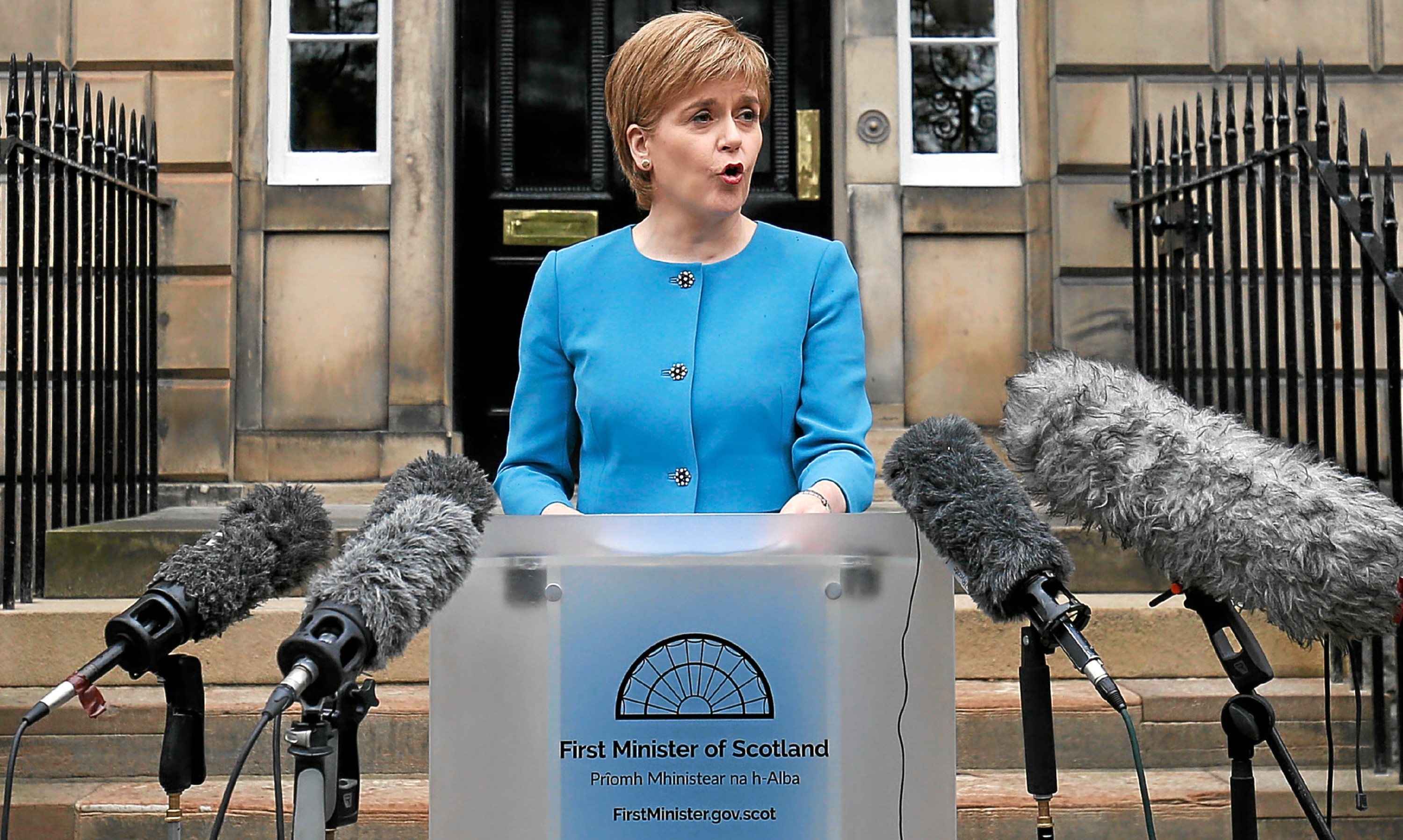In the tumultuous days since last week’s shock Brexit vote, Britain’s entire political landscape has appeared to crumble before our eyes.
The Tories, who got us into this mess in the first place, have sacrificed yet another Prime Minister over Europe. Labour, meanwhile, is in even greater turmoil, with most of the Shadow Cabinet resigning in protest over Jeremy Corbyn’s lack of leadership.
A snap general election could be held this autumn, before any exit strategy has been negotiated with Brussels and before the electorate have had time to absorb the consequences of their actions.
In Scotland, we think we are above all this but, in fact, a different kind of madness has prevailed since early last Friday.
There is a growing assumption – and not just by nationalists – that a second independence referendum is inevitable and Scotland will vote to break up Britain.
Polls indicate a rise in support for separation and a host of once committed unionists have lined up to announce their conversions – if they can’t be in the EU, they don’t want to be in the UK.
This is all part of the post-Brexit hysteria whipped up (and who can blame her) by Nicola Sturgeon. Although she campaigned – sincerely I think – for a Remain result, she has found it hard not to look smug since Leave won, despite two thirds of Scots voting to stay in the EU.
This was her “trigger” for a referendum rerun, the dramatic change in circumstances that she had promised the party faithful would warrant revisiting the “once in a generation” ballot of 2014.
She didn’t expect it to happen but now that it has, she is hardly going to let the opportunity pass. The situation we are in is completely unprecedented, she said and there are “no rules”.
The irony of a Scottish Nationalist complaining about unchartered waters was lost on her as she contemplated Scotland’s new possibilities – which included blocking Brexit and trying to remain in the EU while still part of the UK. But the irony of Sturgeon saying she would unify Scots and defend their democratic will was not lost on No voters.
“My job as First Minister, the Scottish Parliament’s job, is to judge these things on the basis of what’s in the interests of the people of Scotland,” she said.
Obviously, it suits her and her party to exploit popular dismay but hopefully, once the dust settles, the people of Scotland will realise that another constitutional crisis is not in their best interests, whatever the SNP says.
The markets are volatile enough, with the pound plunging to record lows and major banks threatening to move their HQs to France, without the further instability of political unrest in Scotland.
Few people, whichever side they were on, fully understand the repercussions of the June 23 decision. How can we when the exact conditions of our withdrawal from Brussels have yet to be determined?
What is certain is that Scotland’s bond – financial, cultural and personal – with the rest of the UK is of infinitely greater value than that with the Common Market.
The UK is by far Scotland’s biggest trading partner, much bigger than the EU. Some 64% of our exports go to the rest of the UK, compared to 15.2% to Europe. Disastrous as it is to leave Europe, it would be far worse to leave Britain.
All the reasons for rejecting secession when we had the chance in 2014 are just as pressing today. Sturgeon can no more name what currency an independent Scotland would have than her predecessor Alex Salmond could 18 months ago.
And she has not even begun to address the problem of erecting border controls between our two countries because she knows that will not be possible.
As for the small matter of the £15 billion deficit Scotland would immediately face if it tore itself away from the UK, no nationalist politician has any answers. They used to talk about oil funds but of course, that argument holds no water these days.
It is tempting for those of us who wanted to maintain the status quo to seek revenge on the likes of Boris Johnson, Nigel Farage and Iain Duncan Smith.
Young people, in particular, are enraged by what older and more xenophobic voters have inflicted on them. Their future as children of Europe has been robbed by, as they see it, people whose future is behind them.
But if we turn our anger against the whole of the UK – which is the same UK Scots voted to keep in 2014 – we cut off our noses to spite the nation’s face, to paraphrase the Scottish historian Neil Oliver, writing this weekend.
Losing one union is unfortunate – to lose two would not just be careless but a catastrophe.
